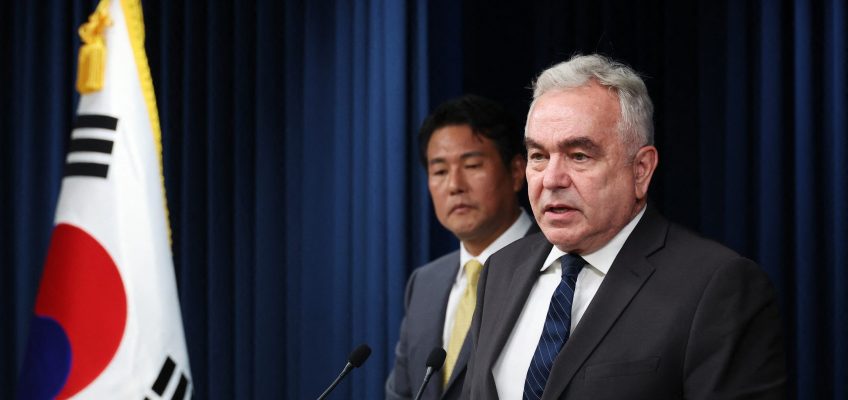Patrick Williams is still overthinking it.
That was clear in the first quarter of Tuesday’s preseason game against the Toronto Raptors. After three minutes, coach Billy Donovan had seen enough, yanking the forward off the court for a lengthy discussion about the same improvements Williams has been trying to make for more than a year.
After practice Wednesday, Donovan’s frustration was palpable. Williams didn’t crash the boards enough. He danced away from physical defenders. He passed up multiple 3-point opportunities when defenders ducked under a screen, leaving him wide open with nearly 5 feet of space.
This all might sound familiar.
Williams, 22, hasn’t figured it out. But for Donovan, the disconnect has been mischaracterized.
“The perception of him not being aggressive — really, the thing he’s got to get better at is the moment of the decision of what to be aggressive with,” Donovan said. “When people say, ‘be aggressive’, people think, ‘Hey, just get the ball and drive it to the basket.’ That’s not being aggressive.”
Donovan doesn’t think Williams needs to be bouncing off defenders or throwing himself through double teams in order to unlock his next level. But he needs to start making decisions — to shoot a 3-pointer, to grab a rebound, to drive through an opponent — rather than falling back into his comfort zone.
Decisiveness, aggressiveness — this might all be semantics. But they’re the main thing holding Williams back, even on his best nights.
Williams acknowledged he was in his head too much Tuesday. He didn’t feel as if he was hesitating on specific plays, but the issue was still a mental barrier — especially on the boards.
“It’s definitely something I can do,” Williams said. “I don’t think that’s a secret, that I can rebound. It’s just more so going back and getting it. It’s just a mindset. I don’t think physically there’s nothing I can’t do. It’s just having that mindset to go.”
The problem is nearly universal across the Bulls roster. Every improvement the Bulls want to make — taking more shots, drawing more fouls, generating more catch-and-shoot 3s — stems from aggressively getting into the paint with aggression and decisively shooting the ball.
Players know this. Coaches know this. Fans certainly know it too. Yet the timidity remains.
“We just have too many shots we’re passing up,” Donovan said. “We’re shot-faking and passing them up and we’re trying to drive the ball and we’re not even going to the rim. We’re driving to the elbow and stopping and trying to pass it. Then we end up with a more difficult shot than we had prior to that.”
Williams is the most blatant example of the Bulls’ lack of edge — if only because of the disparity between his best and worst moments. Donovan believes the key to unlocking Williams is to encourage him to embrace contact with the ball in his hands.
“Because of his size, I don’t necessarily mind when he gets to his spot and pulls up,” Donovan said. “The ones I do mind are when he settles, because I do think there’s another gear that he can go to physically where he can just go right through the guy and get to the rim or get to the free-throw line and generate more offense that way. A lot of times he — I don’t want to say gives up on the play — but he’ll stop because he can always go to that. But you don’t get fouled on those shots, you don’t offensive rebound those shots.”
That doesn’t bother Williams’ greatest competition on the roster — fellow forward Torrey Craig, who replaced him with the early sub Tuesday.
It has become clear that Craig will push Williams — either into a better version of himself or potentially out of his position.
Williams briefly lost the starting job to Javonte Green last season, although that rotation change was quickly nixed because of a lingering injury that Green never shook. Donovan made it clear the door is still open for a similar change this season — either on opening day or later.
Craig, 32, has embraced his role as motivator for Williams. It’s a respectful competition — the pair grew up less than an hour away from each other and voiced a deep, long-standing respect for one another’s game.
But Craig wants to get the absolute most out of Williams, even if it means talking trash and roughing him up a bit in practice.
“I stay in his ear,” Craig said. “I make sure most everything is positive, but I show tough love when it’s necessary.”
Craig is a solid perimeter shooter but doesn’t have the same playmaking potential Williams has shown. But potential quickly loses value when it’s competing against consistent results.
The half-life of this edge over Craig has yet to be determined — but it will narrow with each performance like Tuesday night.
()




